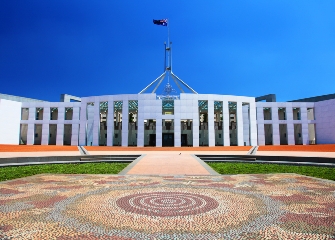Commercial radio industry supports the modernisation of outdated laws
 The commercial radio industry welcomes the bipartisan support by the Senate Legal and Constitutional Affairs Legislation Committee for the modernisation of broadcasting laws that haven’t kept pace with the current media landscape.
The commercial radio industry welcomes the bipartisan support by the Senate Legal and Constitutional Affairs Legislation Committee for the modernisation of broadcasting laws that haven’t kept pace with the current media landscape.
The Senate Legal and Constitutional Affairs Legislation Committee headed up by Senator the Hon Ian Macdonald in its recent report on the Freedom of Speech Legislation Amendment (Censorship) Bill 2018, has called on the Government to consider amendments to the Broadcasting Services Act 1992.
Under the current regulatory imbalance, three days before an election, political ads cannot be placed on local radio but can be placed in digital media, print, direct and outdoor as well as being sent by sms directly to personal to mobile phones right up until the closing of the polls.
Says Joan Warner, chief executive officer of Commercial Radio Australia: “This election advertising blackout rule is an old restriction that hasn’t caught up with modern media.”
The radio industry has been calling for an amendment for many years, most recently to the Joint Standing Committee on Electoral Matters. In the Joint Standing Committee on Electoral Matters’ report in November 2018 the Chair, Senator the Hon James McGrath said; “A matter for future consideration by this Committee is the issue of political advertising blackouts during election periods. The current rules lack consistency, and favour by default, rather than design, online media platforms over more traditional media formats.”
Says Warner: “We’re very pleased the Senate Legal Committee has now also unanimously voiced concerns regarding “the appropriateness of the ‘electoral advertising blackout’ in a changing media landscape.
“This advertising blackout has a significant financial impact on local radio broadcasters, and we welcome its removal as soon as possible to remove inequity in the marketplace and end the differential treatment of local radio stations.”
